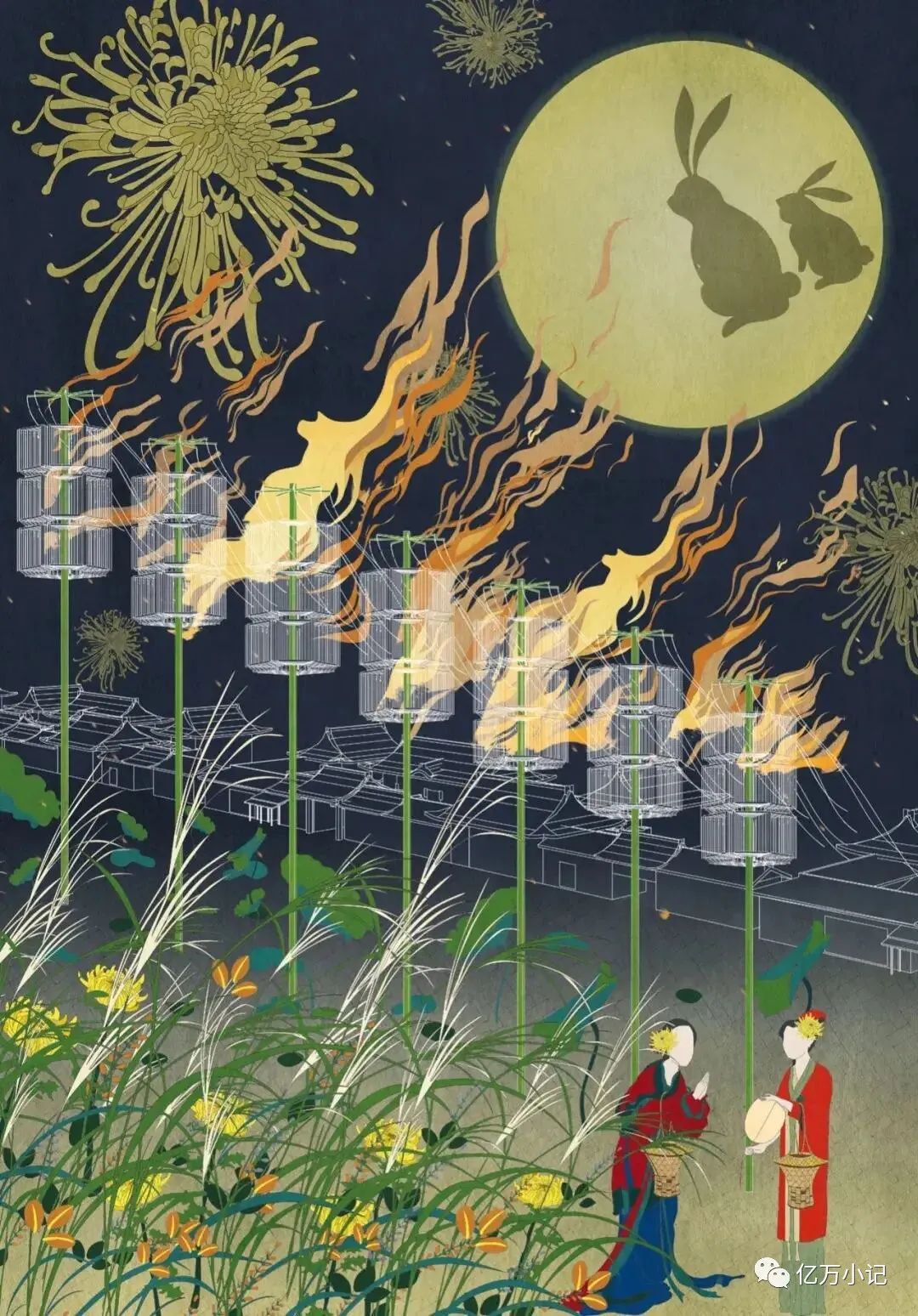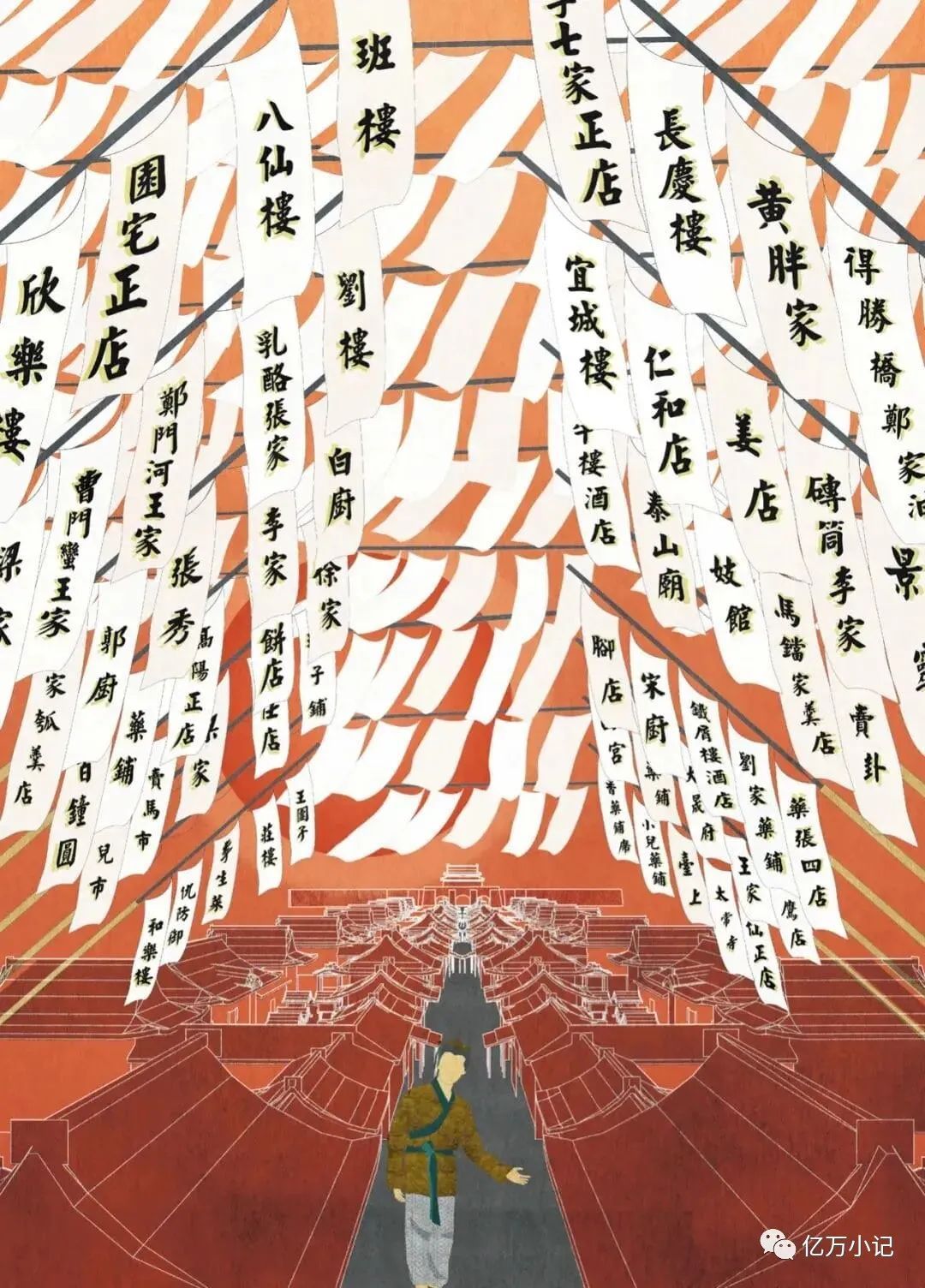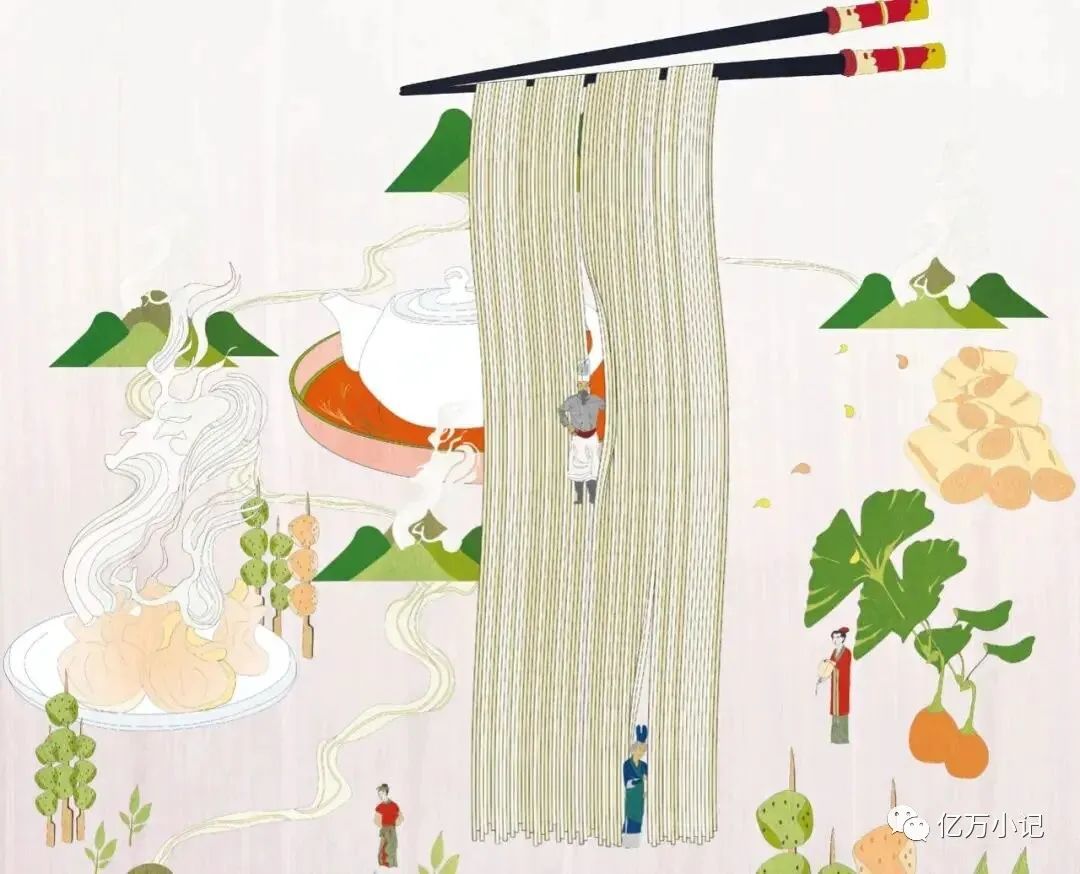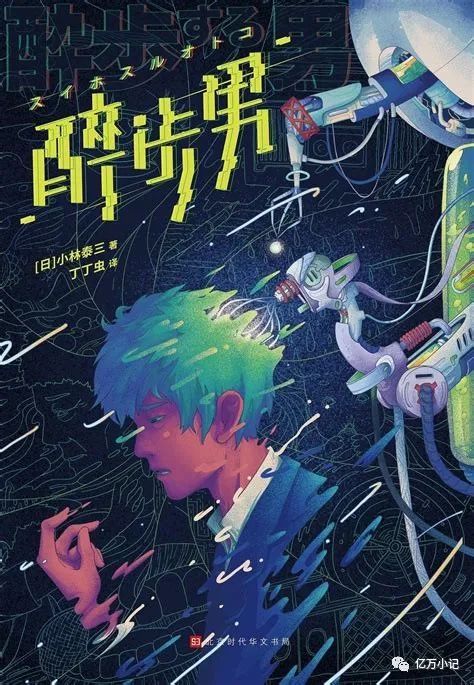Several Little Books Week No.1 | Breaking the Dimensional Wall
I am a person who reads a lot of books, and I don't want to read according to one type of book, so each time the theme and type are different.
One book and one world. The theme of this time is "Breaking the Dimension Wall".
What's the point of being a modern idiot living in real life, living in a daze every day? Of course, it's fun to go to other dimensions to stroll around.
Dimension A - A Dream of Hua Xu in the Song Dynasty
The peace is long, and the characters are numerous. A boy with a tiáo, but he learns to encourage;
Banbai's old man doesn't know how to fight. The seasons are different, each with its own viewing pleasure.
On the night of the lantern and the moon, when the snow is blooming, begging for a skill to climb high and teach the pool garden.
—— "Menghua Recording Preface"

On New Year's Eve in 1147, that is, the seventeenth year of Shaoxing, an elderly man picked up a pen and began to record the prosperity of the Song Dynasty in his memories.
He is Meng Yuanlao who wrote "Tokyo Dream Hualu".
After the Jingkang Rebellion, he was forced to leave the capital and went south to Jiangdong to escape the war. A person often recalls the comfortable life in the capital, worrying that with the passage of time, discussing the customs and customs of the year will become more and more distorted, so relying on memory, I recorded the landscape customs of that year and edited it into a book. I hope that readers will open it after opening it. , you can feel the grand occasion of that year.
In his opinion, the experience before Nandu was like a dream of Hua Xu, "I miss it now, and look back with a sense of disappointment." The name "Menghualu" also came from this.

The recent TV drama "Meng Hualu" caught fire, in which many folk customs, food and clothing costs, legal regulations, and official system of the Song Dynasty have been restored to life, except for the scene reference provided by "Across the River at Qingming Festival". In addition, there is absolutely no shortage of memory recorders like Meng Yuanlao.
You can feel the generosity of Song Dynasty people. In the "Folk Customs" chapter, Meng Yuanlao recorded such a Northern Song Dynasty:
"If you see foreigners being bullied and bullied by the people, everyone will save them. Or if you see a military shop receiving a fight, and you go to persuade them for help, there are people who accompany the wine and food officials to save them."
The point is that in the Northern Song Dynasty, if city people bullied outsiders, other people would definitely come forward to fight the injustice; if street sergeants were arrested and fought, they would come forward with enthusiasm, and even willing to pay their own pockets to invite officers to dinner, making a big issue a trivial matter. , it's trivial.
Even if a foreigner moved to the capital, the neighbors of the Northern Song Dynasty would enthusiastically lend him their household necessities, bring hot tea and take the initiative to stop by and tell him their life information, such as the location of various shops nearby. of. Looking at it this way, a lively aunt of the Chaoyang District neighborhood committee in Beijing revealed many "human touches" of the Northern Song Dynasty people at that time. Now if someone does this, most of them will be suspicious, or think that others are nosy.
In addition, as an ancient eater and broadcaster, Meng Yuanlao's familiarity with Beijing snacks is absolutely unparalleled - from the official family (the emperor of the Song Dynasty became the "official family") what to eat every day, how to eat, down to the food street Memories are all listed. In the chapter of "Zhouqiao Night Market", Meng Yuanlao talked about the delicious food in this night market. And from this side of the bridge to the other side of the bridge, there is nothing he can't say:
"...Cao's family is always eating. Going to Zhuquemen, spin-fried sheep's white intestines, dried 鲊(zhǎ), 㸇(zuǎn) frozen fish head, ginger soy sauce, zhézi, smeared dirty, red silk, batch-cut sheep's head, Spicy feet, ginger and spicy radish...
Xia Yue, Ma fermented chicken skin, Ma drink fine powder, plain stick, sugar ice and snow cold Yuanzi, crystal soap, raw flooded papaya, medicinal papaya, chicken head ráng (ráng), sand sugar mung bean licorice ice and snow cold water, lychee paste ...are stored in plum red boxes.
In winter months, rabbits, roasted pork skins, wild ducks, dripping crisps, crystal scallops, etc., until Longjin Bridge must have brain meat, which is called 'miscellaneous chews', until the third watch. "

A variety of snacks, summer and winter are also different. In summer, there are many fruits in season, such as raw and pickled cold vegetables, and in winter, there are many hot foods that are baked and sold. Throughout the night market from Zhuquemen to Longjin Bridge, "the last one is a stall that sells beards, brains and meat", and the stalls are often closed at the third watch.
Not only did they eat a variety of foods, but the people of the Song Dynasty were even more particular about how they treated people and things than they are today:
"When it comes to the quality of food, they will never dare to be rash. People who sell medicines and fortune tellers on the streets are all well-dressed, and even the beggars on the streets and alleys have their own rules. If someone goes beyond words and deeds and slacks off, they will not be accepted by everyone. ."
Due to the emphasis on etiquette and pomp, coupled with prosperous commerce, there were even "rental horse travel" and "rental of wedding clothes and wedding supplies" at that time, which is about equal to today's sharing economy. Now it seems that these concepts of the Internet may have been tired of being played by the people of the Song Dynasty... Now it is just a change of soup instead of medicine.
When I accidentally open a chapter while taking the subway to work, I can immediately immerse myself in another world, which is an indescribable consolation. Meng Yuanlao's reluctance 875 years ago allowed us to see a vivid Song Dynasty.
Dimension B - a parallel world after "drunk"
Sometimes I didn't plan to go to that store, but I walked along,
I don't know when that pub was in front of me;
What's even weirder is that if it was daytime,
I couldn't find the store even if I traveled all over the area, and I can't seem to remember the name of the store.
I tried asking my friends once, and they all thought I must be so drunk that they confused where I was drinking.
——"Drunken Step Man"
Did you get too drunk and cut off the film; or did the tavern cease to exist after you woke up?
Japanese mystery novelist Kobayashi Taizo's "Drunken Step Man" will ask you this question in front of his face.

The reason why his works are called "horror novels" is not because of some ghosts, but because of the "subversive fear of worldview" he brings to people in the process of inference.
On the other hand, the writing of this mystery novel cannot be called "exquisite", but it can give you a physical shock and a sense of jump in the step-by-step reasoning. When you are entangled in the trivialities of real life, Kobayashi Taizo's novel can make you look at everything that happens every day from the perspective of God.
One of the most fascinating concepts of the novel is the author's redefinition of "time travel". Previously, we always pinned the possibility of time travel on external conditions such as technological development, but this book theoretically infers biological knowledge, and realizes "time travel" by the lack of the brain's time perception function .
Thus, "time travel" becomes a "disability" rather than a superpower.
But also because humans have lost their ability to perceive time, time has become subjectively disordered, past, present, and future no longer flow in one direction, and causality no longer exists. You must know that the causality theory drawn by human beings is entirely based on human perception of time. There have been too many film and television works such as "Tian Neng", "Arrival", etc., which have discussed the paradox of linear time and free will.
The allusions to the novel come from an ancient legend in the collection of ancient Japanese poems "Manyoshu": two men, Otakeda and Blood Swamp, fell in love with the beautiful girl Doughara Tezana at the same time. , had to commit suicide, and the two men also died with her. And this novel seems to me to have a science-fiction way of conducting a dialogue across time and space: there are hundreds of millions of possible combinations of things, and what you see today is just one of them. Standing outside the timeline, you are the observer of "Schrödinger's cat". The cat's death or life depends on your will.
This point, Shakespeare may have been aware of:
“To be or not to be: that is a question.”
Dimension C - "A Glimpse" of Old Shanghai
Saw an unfamiliar fish. It roams around at the desk late at night. The light of my cigarette flickered, and it churned.
—— "The Age of Shuffling · Postscript"
Too many to finish, see you next time...
(Every article here is a gift from me, hope you like it)
Like my work? Don't forget to support and clap, let me know that you are with me on the road of creation. Keep this enthusiasm together!
